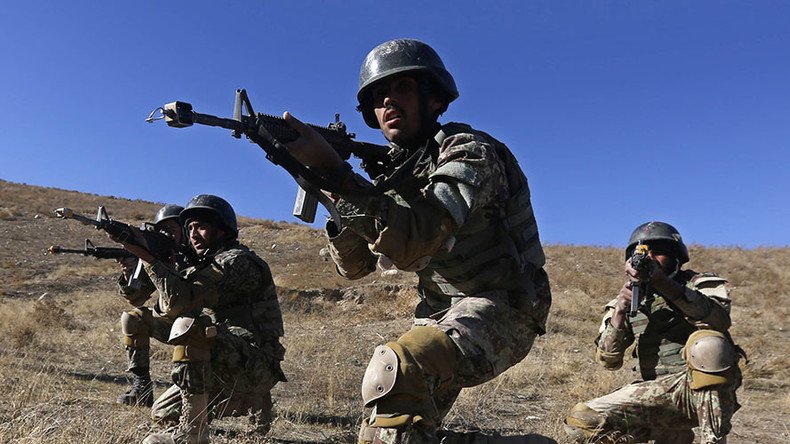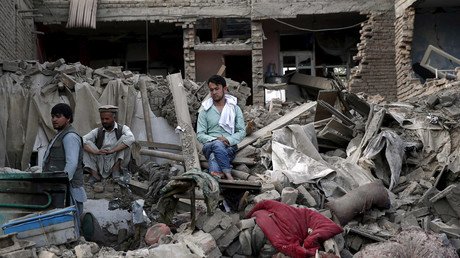British-trained Afghan National Army is falling apart – report

Partially trained by UK troops as an exit strategy, the Afghan National Army (ANA) is now wracked with recruitment and equipment woes and endemic corruption, a Kings College London (KCL) study claims.
Carried out by KCL academic Dr Antonio Giustozzi and Afghan research expert Ali Mohammad Ali, the ‘Afghan National Army After ISAF’ report looks at the condition of the ANA since foreign advisors handed over control to Afghan authorities in 2014.
The report found the army is badly depleted and afflicted with the phenomenon known as “ghost soldiering,” wherein a person is officially on active service but not actually present in the military.
Senior military leadership roles “are still heavily influenced by political interference, often resulting in the appointment of incompetent commanders,” the authors claim.
The leadership situation has led to a major dip in morale which has seen insurgents gain the upper-hand, leaving the ANA “unable to put together any serious efforts.”
A lack of air support and various equipment issues were also reported. Despite heavy spending on military hardware the ANA still deploys in Ford pickup trucks, the study says.
The report draws heavily on testimony from within the military. One source claimed if the army drew troops from one province to recapture another, the Taliban simply shifted their aims and recaptured the weakened area.
“We have fewer soldiers in the ANA and don’t have enough equipment and air support. We can take these districts and provinces back but we don’t have the ability to keep these areas under our control for a long time,” one senior officer claimed.
Another officer lamented the withdrawal of foreign advisors, which he claimed had provided a stabilizing force against corruption.
“Since these foreign advisers left the battalions, there are no schedules, and the commanders are not behaving well with their soldiers,” he argued.
“When the foreign advisers were there, there was no corruption, but now there is a lot of corruption in these battalions.”
In recent months large swathes of Helmand province have fallen to insurgents, including key areas such as the town of Sangin, where hundreds of British troops were killed during the Western occupation.
The British Army website refers at length to UK military training delivered to Afghanistan’s security forces.
“UK servicemen and women have played an important part in developing the Afghan National Security Forces. They have helped train, advise and mentor the Afghan forces,” it says.
“As a result, the Afghan forces have developed into credible and capable units that are earning the respect and trust of the Afghan population.”
A recent UN report also highlighted a spike in civilian casualties as the situation in Afghanistan appears to spiral out of control.
According to the UN’s 2015 Annual Report on Protection of Civilians in Armed Conflict, the total number of civilian casualties recorded in the last year amounted to more than 11,000, including more than 3,500 deaths and almost 7,500 injuries.
The casualties were largely people caught up in fighting between government forces and anti-government insurgents.













